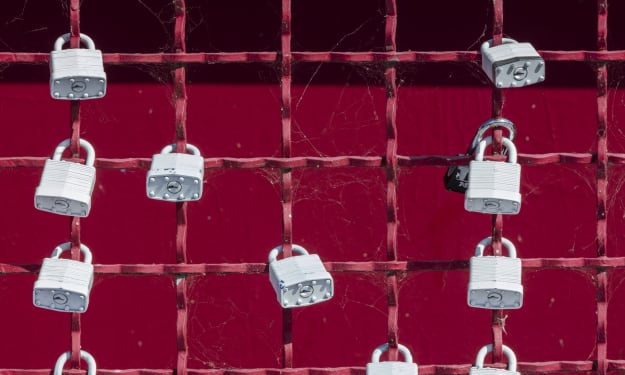Save Lives—Requesting that All Police Departments Have Domestic Violence Units
Change is Needed to Address Preventable Domestic Violence and Death.

So, I Finally Did the Thing.
The thing I kind of said I would never do. I got “political.” If you can call it that, which I myself do not. I made my first petition to ask for change that I think could save the lives of many women that would likely otherwise end up dead. I am really hoping this thing works. Here it is:
Save Lives. Require All NC Police Departments to Have DV Units.
Statement of Intent

Domestic violence is a complex issue, and it needs more than a simple solution.
A “one-size-fits-all” approach when law enforcement is required to intervene in domestic violence is not yielding satisfactory results, which is shown by statistical data and case studies.
- There is an overwhelming sense of urgency prompted by the statistic that 1 in 4 women will become a victim of domestic violence.
- That means out of every 4 faces you see, one of those women will be intentionally harmed behind closed doors. It could be our friend, neighbor, teacher, sister, or spouse of coworker.
The rates of domestic violence and related homicides are equally as shocking. According to the National Coalition Against Domestic Violence:
- Having a firearm in an abusive home increases the likelihood of homicide by 500%.
- “Approximately 4.5 million American women alive today have been threatened by intimate partners with firearms. One million have actually been shot or shot at by their abusers.”
- 40% of female murder victims are killed by intimate partners.
- 72% of all murder-suicides are perpetrated by intimate partners.
- 94% of murder-suicide victims are female.
- Intimate partner violence accounts for approximately 15% of all violent crime in US.
- 19% of intimate partner/domestic violence involves a weapon.
The U.S. Homicide Rate shows us a record level:
- The female victim rate of homicide rose by 21% in 2016 from the previous year. This number was comparatively high to male victims, 82% of those females who were killed, were victims of their intimate partners or someone who was close to them.
- Over 50% of all women murdered in 2017 were slain by a partner or family member. Men were shown more likely to perpetrators, with 9 out of 10 aggressors in homicides being men.
The expectation is that this proposal be tailored to fit in compromise with the needs, limitations, and goals of the state. While it cannot solve every problem regarding the complexities of domestic violence cases, it could provide enough universal benefit to outweigh oppositional reasoning.
Regardless of outcome, lawmakers and government officials should continue to be diligent and proactive in seeking a viable solution to an unacceptable problem of criminal violence. Starting such a program in NC would be setting an example for federal implementation for all states as a long term goal.
Bill of Proposal

1. All police units should be required to have a special unit for domestic violence calls.This would include experts trained in psychology, trauma, social work and other related domestic violence advocates during business hours, with an on-call staff as the budget permits.
- Calls would be transferred to the unit in instances it would serve useful. Dispatchers and officers could be given flags to indicate which department to send the call in cases where the caller is already in the system.
- Size of staff should be in proportional ratio to the population being served, and can be expanded upon demand if high call volume requires it.
2. Victims should receive follow-up care plan, especially after the shock has passed, including conducting a lethality test to make an assessment of danger.
- When possible, free transport by law enforcement DV unit to a local shelter for further care and safe housing as necessary. Homelessness is one of the biggest factors that prevent victims from leaving an abusive household situation.
- Making sure the victim is receiving appropriate care will allow them to spend their efforts in seeking legal remedies of protection, such as a DV protective order, more accessible.
Economic Impact
Opening up domestic violence units would provide more available state jobs, and could have a positive impact on the economy with careful planning and budgeting.
According to the National Coalition Against Domestic Violence,
“21–60% of victims of intimate partner violence lose their jobs due to reasons stemming from the abuse, and victims of intimate partner violence lose a total of 8,000,000 million days of paid work each year, the equivalent of 32,000 full-time jobs.”
Points of Reason

Domestic violence victims who have retaliated, used self defense, or have been blackmailed are being frequently arrested instead of their abusers who are harming them and their children.
1. In an abusive relationship dynamic, victims of domestic violence are playing a dangerous game of survival in the following ways:
- being held under restrictive control, which includes where they go, who they see, how they eat, how they dress, and how they act in order to avoid being hurt. There are either explicit or implicit rules.
- experiencing financial deprivation and economic abuse, such as controlled joint accounts, forced debt, or resulting inability to work.
- targets of fearful intimidation and physical threats, implications of death, harassment, verbal degradation, outbursts of rage and yelling.
- witnesses and targets of displays of violence including methods of smashing, hitting, punching, slapping, pulling, ripping, or throwing, being physically beaten, strangled, or threatened directly or indirectly with a weapon.
- Victims of domestic violence often cannot see the danger that they are in, and police officers should have a duty to protect them from further harm if they have been called to a scene. Creating a domestic violence unit holds officers accountable to protect the victim’s life and take proper action to ensure safety.
- Victims are usually being coerced, deceived, and are heavily psychologically manipulated. They are told they deserve to be hurt if they do not comply with the abuser’s rules and are made to believe it is their fault that this is happening to them. Because of this, picking up the phone to call the police is seen as a desperate last measure.
- After violent episodes, the abuser will act like nothing happened or will apologize, only to continue the same cycle over again. Eventually, the abusive person will act out in rage again. This is a violence that grows in intensity and frequency with the passage of time, leaving the victim intentionally confused so they cannot see the true danger.
2. Victims of domestic abuse who have been repeatedly subjected to domestic violence have underwent extreme trauma, and police officers often do not have the necessary training or time necessary to make appropriate judgement calls in some instances.
- Typically, after the police have been called to the scene, victims of domestic violence will be in shock and may seem emotionally distraught. This is a normal psychological response, yet officers have repeatedly made arrests of the victim instead of the perpetrator, placing the victim’s life in imminent danger. Without proper assistance, it would be easy for a human being to make such an error.
3. It is a widely conceived understanding that abusive people can be deceptive, manipulative, and even “charming” as necessary. To a complete stranger or the untrained eye, these people can easily appear to be normal, calm, and collected when talking to the police about the incident.
- When proposing legislation, we must take into consideration the human factor and recognize the real world implications of what is being faced. Any solutions proposed without such consideration would render useless in application.
- Many abusers can even deceive someone who has been trained to recognize such behavior, so it would not be an inaccurate assumption or reflective judgement of character to say an officer could be susceptible to such tactics. This is why those who commit crimes of domestic violence, assault, and rape can also become murderers. A person must possess a certain personality and moral turpitude to act in such capacity, and this is the reason we have criminal law in the first place, to protect the innocent from those who seek to harm them.
- This is where a team of psychological experts, physicians, social workers, and trauma specialists would prove useful in determining appropriate action. This would mitigate bias, lower the probability of misjudgment, and decrease the chance of wrongful arrest.
4. When police fail to help victims escape domestic violence, this can sometimes play an unfortunate role in further harm or result in death due to unaddressed violence that has now escalated.
- Abusers can use the power and authority of the police to further perpetuate their control of the victim. The abuser could intimate the victim using police authority, which is true if they have friends or relatives in the force. They can blackmail them to have them falsely arrested, which disempowers the victim making it even more difficult to escape. When a person feels the police officers are on the side of their abuser, that they have no legal remedy against the violence, then they are more likely to not make a phone call that could save their life.
- Domestic violence victims typically try to escape or leave their situation an average of eight times before being freed. Many victims have called the police multiple times, and in many cases the police have failed to help them by making an arrest or aiding the victim to safety. Police officers are great at what they do, but they are not psychological experts. It takes years of training and experience to understand relationship dynamics behind the cycle of violence. When multiple calls have clearly been made to the authorities, officers should have an alert in their system that will send the call to be handled by the appropriate staff. The difference in how the call is handled could mean life or death of the victim.
Each time the police are involved or the victim tries to escape, violence escalates and increases the likelihood of fatality from domestic violence homicide.
Impact of This Bill

We must recognize that teamwork solves problems more often than work that is being done from a singular perspective. When lives are at risk, we owe it to the citizens of our state and country to put forth our best efforts to provide protection, safety, and justice.
By signing this into action, we can significantly impact fatality rates and better protect victims from exposure to violence and risk of death.
- It would also have a positive impact on perception of law enforcement, government agencies, and the criminal justice system in the eyes of the community they serve.
- While it is not possible to say with complete accuracy that abusive criminals will be deterred from taking extreme action, people are less likely to conduct themselves maliciously if they do not believe that they can get away with their crimes.
- For many victims of domestic violence related homicide, it is unfortunately already too late. Let not their blood be shed in vain, but let’s work together to make a better, safer state and country for everyone.
The survivor community asks as one voice for your thorough consideration to move this bill forward, adjusting as necessary to mitigate harm to victims and make effort to prevent loss of life.
Save Lives. Require All NC Police Departments to Have DV Units.
— We Are Warriors.
About the Creator
Samantha Clarke
I'm a human that writes. domestic violence survivor. advocate for women. versed in psychology & criminology. founder of We Are Warriors movement. connect at insta: @we___are___warriors & twitter: @WeAre__Warriors.






Comments
There are no comments for this story
Be the first to respond and start the conversation.